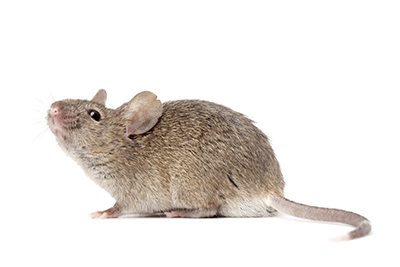 The age old conflict of cat vs. mouse may not be as simple as we used to think. This, according to BBC News, comes from a new study reported at the recent meeting of the Society for Experimental Biology. Research found that mice can become accustomed to the presence of a chemical found in the urine of cats and are less likely to flee when they smell that chemical. The chemical is appropriately called “felinine,” and when nursing baby mice were exposed it during the study, and again later in life it was found that the expected, terror-filled flight did not occur.
The age old conflict of cat vs. mouse may not be as simple as we used to think. This, according to BBC News, comes from a new study reported at the recent meeting of the Society for Experimental Biology. Research found that mice can become accustomed to the presence of a chemical found in the urine of cats and are less likely to flee when they smell that chemical. The chemical is appropriately called “felinine,” and when nursing baby mice were exposed it during the study, and again later in life it was found that the expected, terror-filled flight did not occur.
The Empire State tribune reports that, according to Dr. Vera Voznessenskaya, from the AN Severstov Institute for Ecology and Evolution in Moscow, felinine had been previously found to have other affects on mice. It can, for example produce an increase in stress hormones (glucocorticoids) that are known to produce abortions in mice.
Interestingly, during this study, mice were actually more sensitive to the felinine chemical than those not previously exposed, but for some reason they did not run away. Voznessenskya said that mice normally react to the detection of felinine, which triggers a set of responses including an increase in stress hormones.
This is hardly a new development and, in fact, DBV News quoted Voznessenskaya as saying, “It’s something that has existed in cats and mice for thousands of years,” probably since they began to share human homes.
Why aren’t the mice running?
TECHTIMES reports researchers found that very young mice, exposed to the smell of felinine while experiencing a pleasant input such as nursing, may well experience positive reinforcement.
While they don’t run from the scent, the mice’s brains did produce the same stress hormones as the control group. They just don’t act on it.
Could this behavior benefit both species?
Interestingly, mental_floss reports that Dr. Voznessenskaya thinks this behavior may be useful for both predator and prey. Mice are less likely to run away and therefore expose themselves to cats, but they are also more likely to stay close enough to find the food scraps they need to survive.
